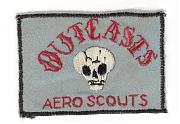Again, you got your priorities totally wrong.
You should not wish for being experienced in first aid training when you crashed your car again and your wife lies next to you, bleeding.
You should with to not drive that stupidly and not crash your car in the first place, much less repeatedly.
What you're doing is to propose that every driver should regularly be involved in car crashes, in order to be better prepared for the next tone. That's totally misguided (if not crazy) thinking.
















Bookmarks